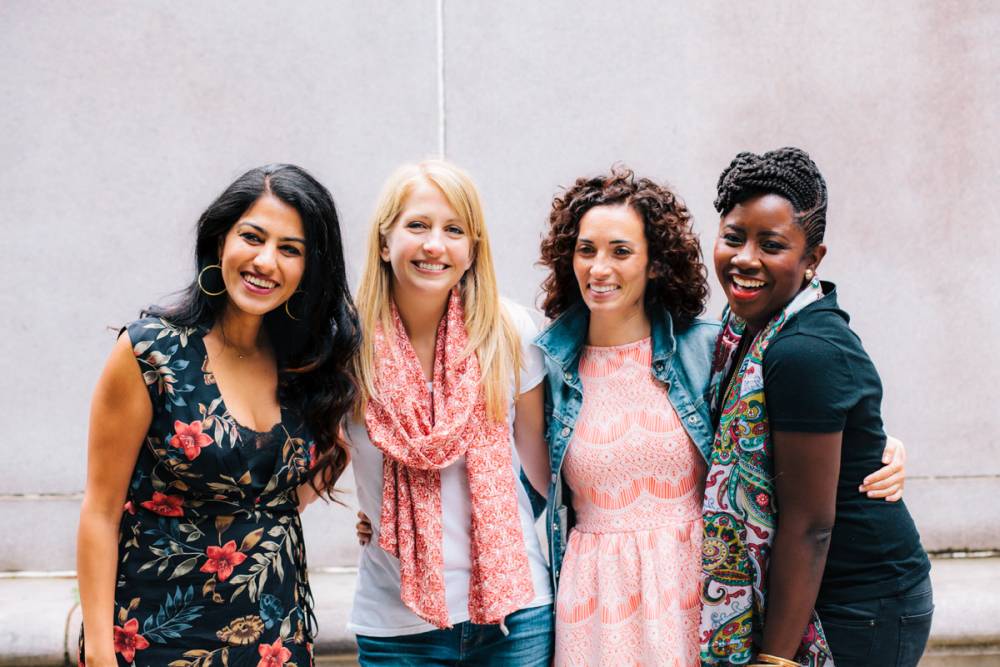
Meet Wearwell, a new sustainable fashion subscription start-up based in Philadelphia. Every month, conscious consumers choose between a curated selection of ethically-sourced clothing.
Founders Erin Houston and Emily Kenney bootstrapped their new fashion business from 2017 to reach today more than 500 monthly subscribers. The team raised USD 200,000 in pre-seed funding and over USD 78,000 through their equity crowdfunding campaign.
The advantages of Wearwell lie into a strong focus on focus on conscious consumers and ethical fashion, an exciting discovery of unique emerging sustainable clothing brands, and personalized experience for each customer.
Wearwell makes it easy for conscious consumers to buy ethically-made clothing and have a positive impact. With your fashion style preferences in mind, expert stylists curate a selection of clothing and accessories delivered to your inbox, from which you can choose to buy through the Wearwell website.
Wearwell does the hard work for you of spending hours researching sustainable alternatives, decoding the many and often conflicting certifications, and searching through hundreds of brands to learn which can be trusted.
Erin Houston and Emily Kenney met while pursuing master’s degrees in International Development at American University. They spent a combined 20 years in International Development, from working with large corporations incorporating responsible practices into their business to leading impact programs on the ground with organizations in over 5 countries.
"After realizing how time-consuming and challenging it is to shop for clothing that pays garment workers fairly and uses environmentally sustainable materials, our founders decided there had to be a better way. So, they started reading up on the issues, took the plunge into entrepreneurship, and set out to build a company that would change the way that people shop."
- Wearwell
The fashion industry is one of the largest polluters globally. It accounts for 8% of the world’s carbon emissions, almost as much as the total for the whole of Europe, as reported by the Fashion Transparency Index.
The overproduction and overconsumption of cheaply made clothing generate an alarming amount of textile wastes. More than 80% of all clothing produced ends up in landfills to decompose or be incinerated globally, according to the Global Fashion Agenda.
Wearwell believes that one of the most effective ways to spark change is to vote with your dollar. It aims as much as possible to reduce harm to the environment, the workers producing the clothing, and the consumers who purchase it.
"We want to motivate the fashion industry to change. If we can strengthen the conscious consumer market and lift up brands that women can feel great about supporting, we just might create a reason for the big names of fashion to begin to compete for the business of conscious consumers."
- Erin Houston, Wearwell co-founder, and Chief Executive Officer
Luckily, the demand for sustainable and ethical clothing is growing. More and more consumers are asking for green fashion that protects the environment and the welfare of workers.
However, the global textile and apparel industry response is diverse. The rise of smaller ethical fashion brands is contrasted by large clothing retailers using greenwash to appear to be more environmentally friendly than they are.
It's exciting to see new customer-focused companies emphasize sustainable fashion and make it easy for conscious consumers to shop ethically.
The monthly membership fee is USD 8.50 for members to receive a monthly selection by a stylist of clothing and accessories.
Subscribe to Wearwell on their website shopwearwell.com or participate in their equity crowdfunding campaign on the platform Republic.
Photos via Wearwell.
Was this article helpful to you? Please tell us what you liked or didn't like in the comments below.
About the Author: Alex Assoune
What We're Up Against
Multinational corporations overproducing cheap products in the poorest countries.
Huge factories with sweatshop-like conditions underpaying workers.
Media conglomerates promoting unethical, unsustainable products.
Bad actors encouraging overconsumption through oblivious behavior.
- - - -
Thankfully, we've got our supporters, including you.
Panaprium is funded by readers like you who want to join us in our mission to make the world entirely sustainable.
If you can, please support us on a monthly basis. It takes less than a minute to set up, and you will be making a big impact every single month. Thank you.































0 comments